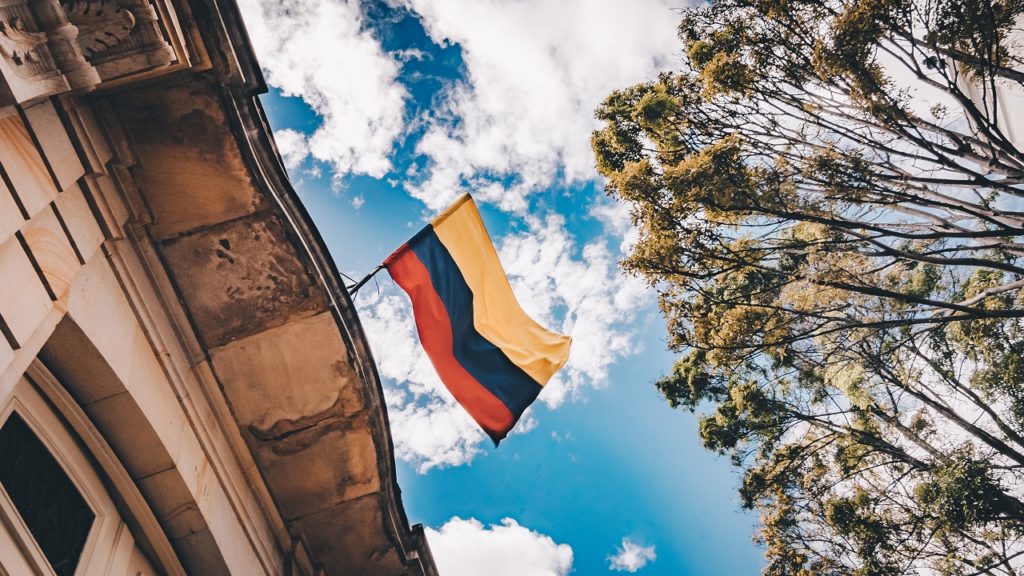Medical cannabis is making headway in Colombia, where it is beginning to move beyond times when its cultivation was associated with violence, to become an ambitious export industry in a growing world market. The agro-industry began to take hold in the country from 2016 when a law was passed allowing the cultivation, manufacture of inputs and products demanded in the pharmaceutical industry.
What’s new in Colombia’s medical cannabis market


Scientific evidence on the medical use of cannabis has triggered a regulatory trend around the world, and Latin America is no exception. As part of this trend, countries such as Brazil, Mexico, Peru, Argentina, and Chile now have legal frameworks or medical cannabis programs.
The Hemp.im application provides you with the latest marijuana news and covers wide-ranging topics related to hemp and cannabis.
Colombia – a pioneer in the cannabis market


Colombia has been a pioneer in this field and has a legal framework since 2016. The country has solid and recognized cannabis regulation, opening the possibility of creating a new sector of the economy. More importantly, as a country, Colombia has the obligation to offer a therapeutic alternative to millions of patients.
The regulation is not about an industrial problem or simply adding an export line to the economy, or about exporting materials for third parties in other countries to develop products. The goal is to provide access and change the lives of people who need to be treated with legal and traceable cannabis medical products.
2019 was a year of articulating and overcoming interpretive barriers between government and private industry. The authorities have made progress in closing the regulatory circle, while the industry is challenging itself to ensure the technical quality of legal cannabis products.
2020 is the year of implementation and consolidation. Both government and industry need to rise to the occasion and take the next step to show they can implement the regulation. The separation of state and private industry as antagonists does not build a country and only engages it in interpretative confrontations and intransigent positions.
Cannabis industry keeps international standards


Progress has been made and the cannabis industry has the will and capacity to keep up with international standards. This, coupled with the political will of the authorities and technical knowledge, is the perfect recipe to consolidate at the local level. For example, for the first time in its history, in 2019 the government authorized Khiron Colombia to cultivate and manufacture (national use quotas) psychoactive cannabis extracts for commercial purposes.
These extracts will be the only raw material licensed in the country for the manufacturing of the first medicinal products. This regulatory advance is a historical milestone that builds a new reality for patients who need these products and should be a source of pride for everyone.
The lives of millions of patients who have lived for years with pathologies treatable by means of medical cannabis are about to change. As soon as Invima schedules the first visits and sets up laboratories with good manufacturing practices, the legal cannabis products will respond to the needs of the patients.
Cannabis distribution
Other processes, however, are still unjustifiably slow and might be put at risk by institutional adjustments. For example, the allocation of regular quotas in 2020, the modification of resolution 1478 that should enable drugstores to dispense and distribute magistral preparations, or the modification of decree 613 that seeks to increase the control parameters for future licensees. If the above-mentioned processes are managed and implemented, Colombia will give an ideal example of public administration.
The country has the ideal institutions to materialize the regulation, the trained officials and a reiterated political will. The only thing missing is that the cannabis sector has efficient procedures. As known, public-private work generates progress, which in other countries is the norm, rather than the exception.
__
(Featured image by Ousa Chea via Unsplash)
DISCLAIMER: This article was written by a third party contributor and does not reflect the opinion of Hemp.im, its management, staff or its associates. Please review our disclaimer for more information.
This article may include forward-looking statements. These forward-looking statements generally are identified by the words “believe,” “project,” “estimate,” “become,” “plan,” “will,” and similar expressions. These forward-looking statements involve known and unknown risks as well as uncertainties, including those discussed in the following cautionary statements and elsewhere in this article and on this site. Although the Company may believe that its expectations are based on reasonable assumptions, the actual results that the Company may achieve may differ materially from any forward-looking statements, which reflect the opinions of the management of the Company only as of the date hereof. Additionally, please make sure to read these important disclosures.
First published in AGRONEGOCIOS, a third-party contributor translated and adapted the article from the original. In case of discrepancy, the original will prevail.
Although we made reasonable efforts to provide accurate translations, some parts may be incorrect. Hemp.im assumes no responsibility for errors, omissions or ambiguities in the translations provided on this website. Any person or entity relying on translated content does so at their own risk. Hemp.im is not responsible for losses caused by such reliance on the accuracy or reliability of translated information. If you wish to report an error or inaccuracy in the translation, we encourage you to contact us.



Comments are closed for this post.